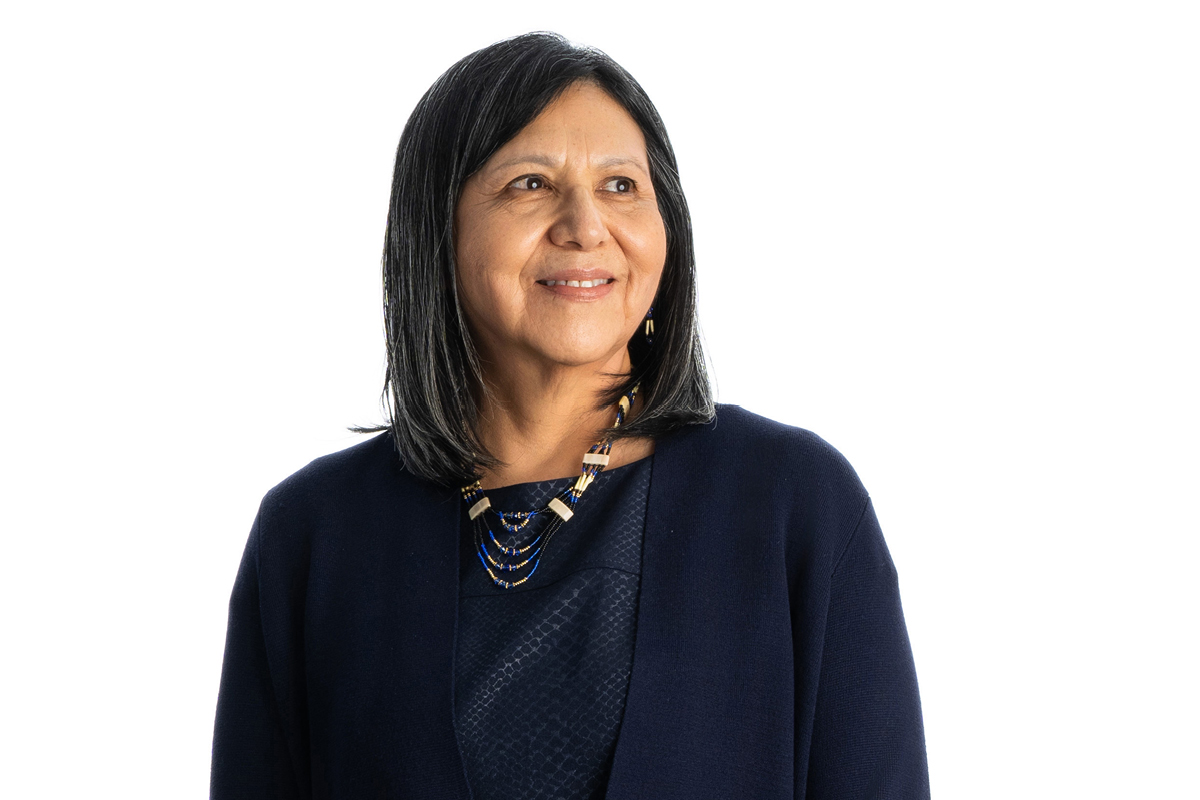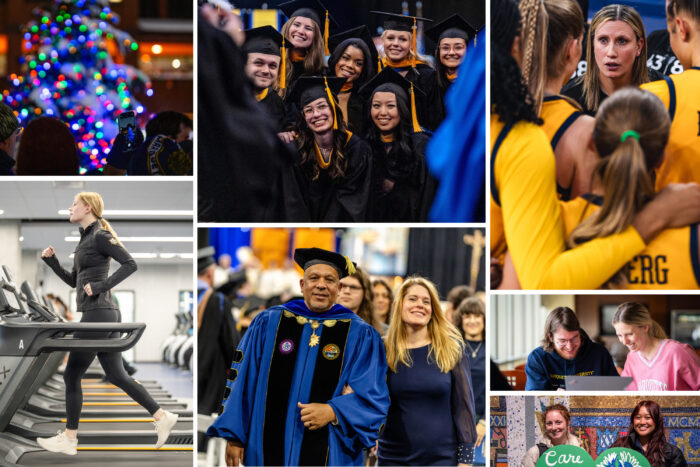A Q&A with alumna Karen Lincoln Michel, journalism innovator and recipient of Marquette’s most recent honorary degree.
In this time when so many news organizations are shrinking or shuttering, the one led by Karen Lincoln Michel is bucking the trend. Since 2020, when the former Madison Magazine publisher joined ICT, a nonprofit news platform serving Indigenous communities, she has not only kept the organization (formerly Indian Country Today) financially strong through effective fundraising but was also at the helm when ICT launched its weekly video newscast. And with backing from the American Journalism Project and others, Michel, a member of the Ho-Chunk Nation, is leading a rapid expansion as ICT grows from two to nine U.S. bureaus.
Michel received an honorary doctoral degree from Marquette during mission week. See bit.ly/michelhd. — Louisa Kamps
What have your leadership experiences in media taught you about managing through today’s challenges?
We are living in a very interesting time. We’ve seen newspapers and other news outlets diminish, and some have gone away. There’s a lot of disruption. But as a nonprofit, we’ve discovered there are different business models out there. Now is the time to find new solutions. It’s a great time for creativity and entrepreneurship.
How did your time at Marquette shape your worldview?
The fact that the American Journalism Project asked us to dream big as we thought about how to cover more Indigenous communities was not a stretch for me because that’s the kind of vision Marquette educators encouraged us to think about for our futures. The emphasis on faith and serving something greater than yourself also really aligned with the kind of person, and the kind of professional, I wanted to be. And the number of friends and colleagues that I keep in touch with from Marquette says a lot about the institution.
What helps you and your team succeed at ICT?
One of the great things about working for ICT is that we rely on our Indigenous values and teachings to run the business and in how we treat each other. From being a Ho-Chunk person and from the education I’ve pursued, I’ve learned to rely on humility and respect. We’ve also implemented talking circles to discuss issues as we would if we were in our own communities, and it’s been fruitful.
What is your proudest accomplishment?
Early in my career, I was a reporter at The Dallas Morning News, and there were some stories I got to cover about Indigenous communities. I was able to dig in and tell them from the communities’ perspective — stories about spirituality, amendments to the American Religious Freedom Act, the use of eagle feathers by Indigenous people and sacred sites. They were important stories that weren’t being told. My editors recognized the perspective and sources I had, so they allowed me to write them. Having that opportunity reinforced for me the power of the media and what an incredible power it is to decide what’s important to cover.
So often in mainstream news, our communities are ignored or overlooked. And sometimes when they are covered, it is inaccurate or a stereotypical portrait of Native Americans. So, to be able to work [now] with an organization where all the journalists are Indigenous, and we cover Indigenous communities, is a real blessing.
Who or what do you turn to when you need a dose of inspiration?
A variety of sources, but I would say the primary one is really the wisdom from generations past. For me as a female, my grandmothers, my mother and different women relatives [hold] a certain wisdom that’s passed down. There are also things I do daily to get myself grounded to take on all the challenges of running an organization — prayer and meditation give me inspiration, strength and direction.
What is an important story on your radar now that you wish more people were paying attention to?
There are a lot of them — climate change being one, and political stories. But I think ICT covers a lot of them. If you go to our site, you’ll see what’s important to us. We deliver news, entertainment and opinion online and on public television in the U.S., Canada and Australia.
You’re staffing up quickly at ICT. What’s your main message for your new reporters starting their careers?
It’s so important for us to tell our own stories. For too long, other people have told our stories, but no one knows our communities better than we do. All the complexities, the different nuances — we can articulate that better than anyone.




